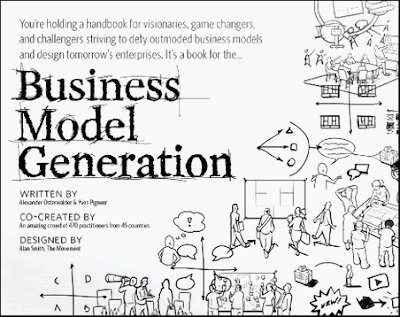Business Model Generation was recommended to me by Kate Griffiths-Lambe. An experienced HR professional based in London, Kate is currently the Head of Global HR at Stonehage.
Business Model Generation teaches you how to analyze and create business models. A business model 'describes the rationale of how an organization creates, delivers, and captures value'.
The authors present a business model canvas made of nine building blocks:
- Customer segments
- Value propositions
- Channels
- Customer relationships
- Revenue streams
- Key resources
- Key activities
- Key partnerships
- Cost structure
A Tool For Business Innovation
The book first helps you understand the model:- It defines each building block.
- It explains the relationships between these blocks.
- It illustrates it with numerous business cases and graphics.
- Unbundled business models
- The long tail
- Multi-sided platforms
- FREE as business model
- Open business models
What's In It For HR Pros?
Like many of this blog's 'HR Books of The Month', this one isn't strictly about HR. However, HR pros will find it useful to enhance their management and business strategy skills.When asked how this book was useful to our profession, Kate Griffiths-Lambe says:
"It's a good tool for determining how a business should operate and hence enabling HR focus on key areas to enhance performance. The book describes itself as "A Handbook for Visionaries, Game Changers, and Challengers" - all things that HR can and should be".
As strategic partners, HR leaders need to understand how their organization creates value. As change agents, they need to understand how business model innovation brings radical transformations to the way their company operates.
The book provides HR pros with the conceptual tools to understand how businesses will operate in the future.
Book Data
- Business Model Generation
- Wiley
- 275 pages + appendixes
- Available at Amazon.com: Business Model Generation: A Handbook for Visionaries, Game Changers, and Challengers
- Website: businessmodelgeneration.com

No comments:
Post a Comment